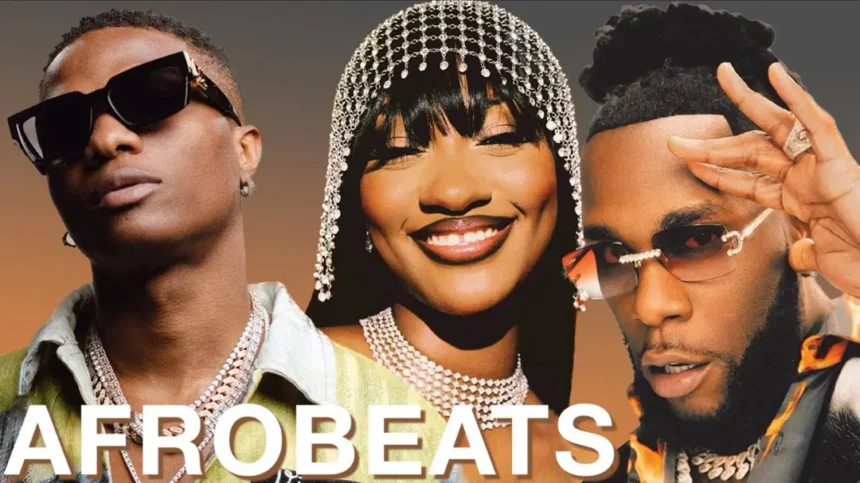Over the last few decades, the world has witnessed the emergence of Nigerian music and hip hop music as influential players in the global music industry. What was once considered niche has now crossed borders, captivating audiences around the world?
Today, Nigerian music, often referred to as Afrobeats, and the unique flavor of Nigerian hip hop are shaping global sounds, inspiring creativity and making waves on the international stage.
Afrobeats, a genre deeply rooted in Nigerian highlife, juju music, and Fela Kuti’s Afrobeat, has taken over airwaves across the globe. With its infectious rhythm, uplifting melodies, and vibrant beats, Afrobeats has become synonymous with the sound of modern African music.
Artists like Wizkid, Burna Boy and Davido have brought Afrobeats into the global spotlight, winning international awards, headlining world tours, and collaborating with major Western artists.
The genre’s global appeal lies in its universal rhythm. Combining traditional African beats with elements of hip hop, dancehall, and pop, Afrobeats resonates with a diverse range of listeners.
Hits like Burna Boy’s “Ye” or Wizkid’s “Essence”, featuring Tems, are prime examples of how Nigerian artists are blending their rich musical heritage with contemporary sounds that speak to audiences from Lagos to Los Angeles.
While Afrobeats has garnered most of the attention, Nigerian hip hop has quietly built a solid foundation in the global music landscape.
Artists such as MI Abaga, Olamide, Phyno, and Falz have taken the traditional elements of American hip hop and infused them with Nigerian flair.
Nigerian hip hop is often delivered in Pidgin English, native dialects, and sometimes, pure Nigerian vernacular, creating a sound that is both culturally authentic and internationally relevant.
Songs like Olamide’s “Wo”, Phyno’s “Fada Fada”, and MI Abaga’s “Undisputed Champion” showcase the genre’s diversity, from street anthems to conscious rap.
The Influence of the Global Music Industry
Major record labels like Universal Music Group and Sony Music have invested in African talent, signing Nigerian artists to international deals
This collaboration has opened doors for Nigerian musicians, giving them access to larger platforms, better distribution, and global marketing.
Furthermore, Nigerian artists are no longer confined to just Nigerian or African stages. They now headline major global music festivals, from Coachella to Glastonbury, and perform alongside some of the world’s biggest artists.
The genre’s presence in international award shows, such as the Grammys, further highlights its growing influence. Burna Boy, for instance, won the Grammy for Best Global Music Album in 2021, marking a historic moment for Nigerian music on the global stage.
Nigerian Music Industry has contributed to the global conversation about Africa’s rising influence in the arts and entertainment industries. The “Afrobeats to the World” movement has sparked interest in African fashion, dance, and culture at large.
The Future: Nigerian Music Industry as a Global Powerhouse
Looking ahead, it’s clear that Nigerian music is not just a passing trend. The blend of Afrobeats and Nigerian hip hop continues to evolve, pushing creative boundaries and further integrating into the global music scene.
With more artists breaking into international markets and newer talents like Rema, Fireboy DML, and Omah Lay gaining recognition, Nigeria’s role in the world music industry is set to grow even stronger.
Nigerian music, particularly Afrobeats and hip hop music videos can be downloaded and save on our device using YouTube Video Downloader. The two genres has transcended national boundaries to become a global sensation.
As the world continues to embrace the vibrancy and richness of Nigerian sounds, it is evident that the country’s influence on the global music industry is just beginning.


